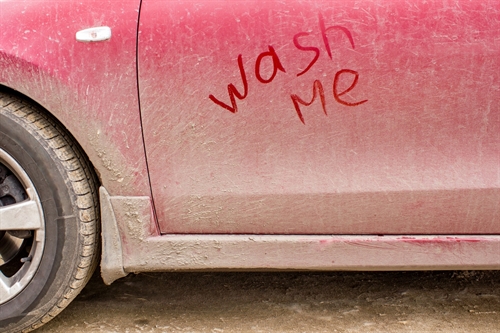Whether you’re taking a few items to the tip, moving into university accommodation, putting a washing machine into storage or coming back from the garden centre, it’s important not to overload your car.
How much can my car carry?
Every car has a maximum authorised mass (MAM) or maximum permitted weight (MPW). This weight is the maximum you can carry – load, driver and passengers. You can find the MAM for your car on the VIN plate or in the log book.
Why is it important not to overload a car?
Overloading affects the handling of your vehicle. It makes stopping distances longer. It can change your vehicle’s centre of gravity, affecting stability; and it makes your car less responsive. It can make it harder to swerve to avoid a hazard.
A very full boot and back seat piled up with clothing or bags will obscure your rear view, making it hard to drive safely. The same goes for items carried on the roof of your car that droop down over the back or front windscreen.
Overloading also increases fuel consumption and wear and tear on the engine, suspension, brakes and tyres.
And unsecured items in a car turn into projectiles if you stop suddenly. Place items – particularly if they are sharp or heavy – in the footwell, rather than on the parcel shelf.
If you are stopped by police and they find your car is overloaded, it’s likely you’ll be fined and you could get points added to your driving licence.
How can you tell if your car is overloaded?
Take a look at the wheel arches of your vehicle. If they look very different from normal when the car is packed, it’s likely that you’re overloaded.
If you don’t have a clear view of your mirrors and you can’t see out of the back window, it’s likely that you’re overloaded.
If you are carrying items on the roof of your car, it says in the Highway Code that they must not stick out dangerously. And items loaded on to your roof need to be secured, too.
What should I do if my car is overloaded?
Do not drive your car if you suspect it’s overloaded. Driving an overloaded car or van is unsafe, and making repeated overloaded journeys could damage your vehicle.
Instead, you could split the load and make multiple journeys. Or you could hire a more suitable vehicle or arrange for the item to be delivered.
Are my goods insured while I’m taking them to my storage unit?
Your Store and Insure policy will cover your goods in transit between your home and the storage unit, as long as they are enclosed in a vehicle (so a load uncovered on the roof may not be included in your policy). You only have to pay to insure your stored goods for the number of days you are storing them. To make sure you’re getting best value from your self-storage insurance, get a quick quote from Store and Insure.





